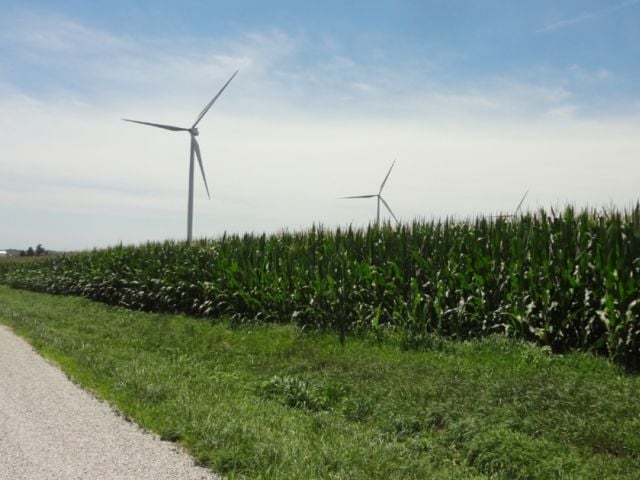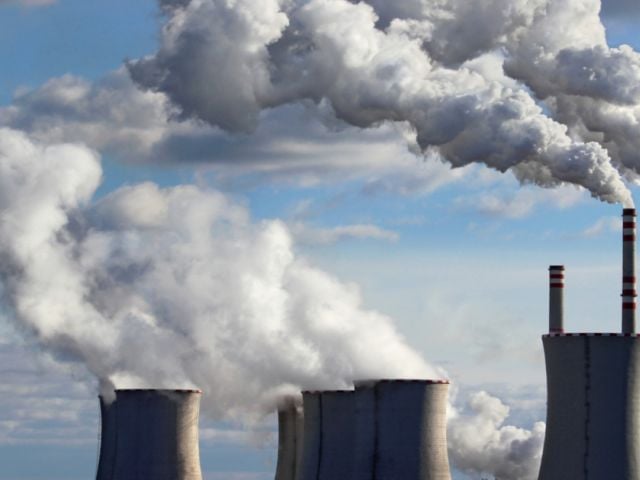
CLEAN AIR TASK FORCE * ENVIRONMENTAL WORKING GROUP
FRIENDS OF THE EARTH * NETWORK FOR NEW ENERGY CHOICES
NEW YORK PUBLIC INTEREST RESEARCH GROUP
Finding ways to reduce fossil fuel use and greenhouse gas emissions while producing enough energy to support economic development worldwide is this century’s preeminent challenge. We must meet this challenge while simultaneously reducing environmental degradation, poverty and hunger. The United States must make a sustained commitment to invest in and develop renewable energy sources that contribute to meeting these challenges.
Support for the Renewable Fuels Standard (RFS) and other biofuel subsidies has been based on the premise that biofuels will: decrease greenhouse gas emissions and thus the devastating effects of global warming; decrease our reliance on foreign oil; decrease the price of gasoline; and bolster US agriculture. US biofuels policy is not achieving these goals, nor is it rationally designed to so do. Instead, we are spending billions of dollars in tax credits and infrastructure development for biofuels that: increase greenhouse gas emissions and exacerbate other serious environmental and public health challenges; contribute to the global food crisis; insignificantly impact oil consumption and do little or nothing to lower transportation costs; and favor some parts of the farm sector at the direct expense of others.
New scientific evidence indicates that biofuel production and use results in a net increase of greenhouse gas emissions when compared to petroleum-based fuels. When full life-cycle effects are taken into account, such as the nitrous oxide emissions from fertilizer used to grow corn and the massive amounts of carbon released as forest and grassland are directly or indirectly converted for biofuel feedstock production, biofuels (including corn ethanol, cellulosic ethanol from switchgrass, and soy biodiesel) have been found to exacerbate global warming.
In addition, global stocks of food grains and edible oils are at historic lows, threatening the world’s most vulnerable people, including the poor and hungry in the United States. Conventional biofuel production also exacerbates soil degradation, water and air pollution, and loss of biodiversity. Also, conventional biofuels have a miniscule effect on fossil fuel use and practically no effect on the cost of driving. Meanwhile, US taxpayers pay billions of dollars annually in tax credits for biofuels, and our imports of foreign crude oil have remained nearly level at approximately 3.7 billion barrels annually. ¹ Although existing law requires biofuels comprise a rising percentage of the nation’s gasoline supply, there is little research demonstrating that some of these fuel mixes will not cause an unacceptable increase in operational problems, safety hazards and air pollution emissions from many on-road and non-road engines in use today.
Biofuel proponents claim that the next generation of “advanced biofuels” will eliminate the problems associated with conventional biofuels and create an economically feasible and environmentally sound solution to reducing dependence on fossil fuels for transportation. Realizing these aspirations will require solving intractable technical and infrastructure challenges, as these “advanced biofuels” can cause the same adverse environmental impacts as conventional ones while also presenting new dangers, such as those associated with synthetic biology. Mandating the use and production of these fuels without fully understanding their effect on the environment and food systems -- as current US biofuel policy does -- is irresponsible and dangerous.
In order to develop truly renewable fuels that accomplish our goals and do not have unintended adverse impacts, concrete steps must be taken.
- Ensure that all policy incentives for renewable fuels, including mandates and subsidies, require attainment of minimum environmental performance standards for production and use, to ensure that publicly supported “renewable fuels” do not degrade our natural resources. Such standards would: certify net life-cycle greenhouse gas emission reductions through 2050, taking into account direct and indirect land use change; and do not cause or contribute to increased damage to soil quality, air quality, water quality, habitat protection, and biodiversity loss. Compliance with these standards must be verified regularly.
- Restrict the RFS to fuel options that do not cause environmental harm, adverse human health impacts or economic disruption.
- Cap the RFS at current levels and gradually phase out the mandate for biofuels, unless it is clearly demonstrated that such fuels can meet minimum environment, health, and consumer protection standards.
- Establish feedstock- and technology-neutral fuel and environmental performance standards for all biofuels and let the market devise ways of reaching them.
- Periodically reevaluate the sustainability and performance of renewable fuels.
- Provide a mechanism and requirement to mitigate unintended adverse effects, including authority to adjust any mandate downward.
- Tie the biofuels tax credits to the performance standards
- Phase out the biofuels tax credit to blenders while phasing in tax credits or subsidies for renewable fuels that are scaled in accordance to the fuels’ relative environmental, health, and consumer protection merits.
- Phase out the biofuels tax credit to blenders while phasing in tax credits or subsidies for renewable fuels that are scaled in accordance to the fuels’ relative environmental, health, and consumer protection merits.
- Rebalance the U.S. renewable energy and energy conservation portfolio to reflect the relative contribution these options can make to reducing fossil fuel use, enhancing the environment, spurring economic development, and increasing energy security.
- Subsidies to renewable energy and conservation should be distributed more evenly between alternative energy sources, and should be allocated in a manner that is fuel - and feedstock -neutral; biofuels, particularly corn ethanol, must no longer receive the lion’s share of federal renewable energy subsidies.
- New policy must:
- Emphasize energy conservation; we cannot drill or grow our way out of the energy crisis.
- Create a level playing field among renewable energy options; set fuel-, feedstock- and technology-neutral standards, so as to reduce fossil fuel consumption and greenhouse gas emissions, improve environmental quality and biodiversity, and reduce pressure on agricultural markets
- Support research to improve the analysis of net climate impacts, net non-climate environmental impacts, commodity price impacts, and other social factors that are substantially affected by policies that promote biofuels. All of the previous policy asks must be based on better research on the impacts from biofuels; understanding these impacts are crucial to developing sound policies.
¹ 3,6 billion barrels in 2004 and 3,6 billion barrels in 2007. http://tonto.eia.doe.gov/dnav/pet/pet_move_impcus_a2_nus_epc0_im0_mbbl_a.htm, 9/30/2008.

